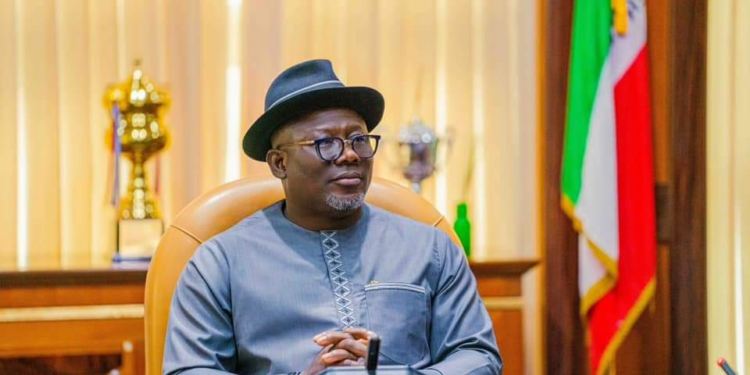The Human Rights Writers Association of Nigeria (HURIWA) has cautioned against what it described as attempts to distort historical and legal facts regarding traditional leadership in Warri, Delta State.
In a strongly worded statement issued on Friday, HURIWA rejected any claim suggesting that the Olu of Warri’s traditional jurisdiction includes Ijaw lands, stating unequivocally that his authority is limited to the Itsekiri Kingdom, as prescribed by law.
Citing a number of legal instruments, including the Western Region Laws of Nigeria No. 177 of 1955, the Chiefs Law of 1957 (Cap. 19), the Bendel State Traditional Rulers and Chiefs Edict (B.S.L.N 44 of 1979), and the Delta State Traditional Rulers, Council and Chiefs Law (Cap. T3, 2006), the association argued that these clearly define the Olu’s role as the recognised leader solely over Itsekiri communities.
The association stressed that the Ijaw clans of Gbaramatu, Egbeoma, Isaba, and Ogbe-Ijoh are autonomous and governed by their own traditional rulers.
HURIWA noted that this position has been upheld not only by legislation but also by recent judicial interpretation, specifically referencing a Court of Appeal judgement (CA/AS/441/2016) delivered on 5 June 2023, which reaffirmed the autonomy of each indigenous clan in the Warri metropolis.
“The legal history is unambiguous,” the group stated. “Successive laws and court rulings have affirmed the Olu of Warri’s authority within Itsekiri lands, not Ijaw territories. To assert otherwise is to mislead the public and risk stirring communal tension.”
HURIWA further noted that Warri metropolis is home to four distinct traditional institutions: Itsekiri (under the Olu), Okere-Urhobo (under the Orosuen), Agbassa (under the Ovie), and Ogbe-Ijoh (under the Amaokosu).
The association insisted that any attempt to impose the Olu’s authority beyond his legal limits constitutes a direct violation of established statutes and poses a threat to the delicate balance of interethnic relations in the region.
Describing such narratives as “revisionist and inflammatory,” HURIWA warned that they could provoke unrest among local communities if left unchecked. The group called on the Delta State Government, the National Council of Traditional Rulers, and security agencies to ensure strict adherence to the rule of law and to protect the autonomy of the Ijaw people.
“The Olu of Warri, originally recognised as the Olu of Itsekiri, must operate strictly within the limits of his jurisdiction,” the statement read. “We stand in solidarity with the Ijaw people in asserting their constitutional right to self-determination and cultural sovereignty.”
HURIWA urged all traditional institutions to commit to peaceful coexistence and mutual respect, while reaffirming its own commitment to defending the heritage and rights of Nigeria’s indigenous communities.
“Warri is not the domain of any single ethnic group. Its diverse peoples deserve equal recognition, protection, and respect under the law,” the statement concluded.



